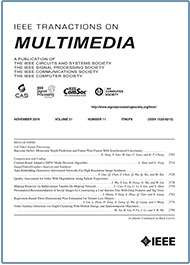- Our Story
- Publications & Resources
- Publications & Resources
- Publications
- IEEE Signal Processing Magazine
- IEEE Journal of Selected Topics in Signal Processing
- IEEE Signal Processing Letters
- IEEE/ACM Transactions on Audio Speech and Language Processing
- IEEE Transactions on Computational Imaging
- IEEE Transactions on Image Processing
- IEEE Transactions on Information Forensics and Security
- IEEE Transactions on Multimedia
- IEEE Transactions on Signal and Information Processing over Networks
- IEEE Transactions on Signal Processing
- IEEE TCI
- IEEE TSIPN
- Data & Challenges
- Submit Manuscript
- Guidelines
- Information for Authors
- Special Issue Deadlines
- Overview Articles
- Top Accessed Articles
- SPS Newsletter
- SigPort
- SPS Resource Center
- Publications Feedback
- Publications FAQ
- Blog
- News
- Dataset Papers
- Conferences & Events
- Community & Involvement
- Professional Development
- For Volunteers
- Information for Authors-OJSP
-
Home
Conferences Events IEEE JSTSP Article IEEE Signal Processing Magazine IEEE TIFS Article IEEE TMM Article IEEE TSP Article Jobs in Signal Processing Lectures Machine Learning Seasonal Schools Signal Processing News SPM Article SPS Distinguished Lectures SPS Newsletter Article SPS Webinar SPS Webinars SPS Webinar Series Webinar webinars
-
Our Story
What is Signal Processing?

The technology we use, and even rely on, in our everyday lives –computers, radios, video, cell phones – is enabled by signal processing. Learn More » -
Publications & Resources
-
SPS Resources
- Signal Processing Magazine The premier publication of the society.
- SPS Newsletter Monthly updates in Signal Processing
- SPS Resource Center Online library of tutorials, lectures, and presentations.
- SigPort Online repository for reports, papers, and more.
- SPS Feed The latest news, events, and more from the world of Signal Processing.
-
SPS Resources
-
Conferences & Events
-
Community & Involvement
-
Membership
- Join SPS The IEEE Signal Processing Magazine, Conference, Discounts, Awards, Collaborations, and more!
- Chapter Locator Find your local chapter and connect with fellow industry professionals, academics and students
- Women in Signal Processing Networking and engagement opportunities for women across signal processing disciplines
- Students Scholarships, conference discounts, travel grants, SP Cup, VIP Cup, 5-MICC
- Young Professionals Career development opportunities, networking
- Get Involved
-
Technical Committees
- Applied Signal Processing Systems
- Audio and Acoustic Signal Processing
- Bio Imaging and Signal Processing
- Computational Imaging
- Image Video and Multidimensional Signal Processing
- Information Forensics and Security
- Machine Learning for Signal Processing
- Multimedia Signal Processing
- Sensor Array and Multichannel
- Signal Processing for Communication and Networking
- Signal Processing Theory and Methods
- Speech and Language Processing
- Technical Working Groups
- More TC Resources
-
Membership
-
Professional Development
-
Professional Development
- Mentoring Experiences for Underrepresented Young Researchers (ME-UYR)
- Micro Mentoring Experience Program (MiME)
- Distinguished Lecturer Program
- Distinguished Lecturers
- Distinguished Lecturer Nominations
- Past Lecturers
- Distinguished Industry Speaker Program
- Distinguished Industry Speakers
- Distinguished Industry Speaker Nominations
- Industry Resources
- IEEE Training Materials
- Jobs in Signal Processing: IEEE Job Site
-
Career Resources
- SPS Education Program Educational content in signal processing and related fields.
- Distinguished Lecturer Program Chapters have access to educators and authors in the fields of Signal Processing
- PROGRESS Initiative Promoting diversity in the field of signal processing.
- Job Opportunities Signal Processing and Technical Committee specific job opportunities
- Job Submission Form Employers may submit opportunities in the area of Signal Processing.
-
Professional Development
-
For Volunteers
-
For Board & Committee Members
- Board Agenda/Minutes* Agendas, minutes and supporting documentation for Board and Committee Members
- SPS Directory* Directory of volunteers, society and division directory for Board and Committee Members.
- Membership Development Reports* Insight into the Society’s month-over-month and year-over-year growths and declines for Board and Committee Members
-
For Board & Committee Members
Popular Pages
Today's:
- Submit a Manuscript
- Awards & Submit Award Nomination
- Information for Authors
- (MLSP 2024) 2024 IEEE International Workshop on Machine Learning for Signal Processing
- IEEE Transactions on Image Processing
- Signal Processing 101
- IEEE/ACM Transactions on Audio Speech and Language Processing
- IEEE Signal Processing Letters
- Nominate a Colleague! Nominations Open for 2024 IEEE SPS Awards
- Information for Authors-SPL
- (SLT 2024) 2024 IEEE Spoken Language Technology Workshop
- IEEE Transactions on Information Forensics and Security
- SPS Scholarship Program
- Conferences & Events
- IEEE Journal of Selected Topics in Signal Processing
All time:
- Information for Authors
- Submit a Manuscript
- IEEE Transactions on Image Processing
- 404 Page
- IEEE/ACM Transactions on Audio Speech and Language Processing
- IEEE Transactions on Information Forensics and Security
- IEEE Transactions on Multimedia
- IEEE Signal Processing Letters
- IEEE Transactions on Signal Processing
- Conferences & Events
- IEEE Journal of Selected Topics in Signal Processing
- Information for Authors-SPL
- Conference Call for Papers
- Signal Processing 101
- IEEE Signal Processing Magazine
Last viewed:
- IEEE Transactions on Image Processing
- (DCC 2024) 2024 Data Compression Conference
- Affine Transformation-Based Deep Frame Prediction
- Membership
- (ACSSC 2024) 2024 Asilomar Conference on Signals, Systems, and Computers
- SPS SLTC/AASP TC Webinar: End-to-End Automatic Speech Recognition
- (ICASSP 2020) 2020 IEEE International Conference on Acoustics, Speech, and Signal Processing
- IEEE Signal Processing Letters
- IEEE Transactions on Signal Processing
- Information for Authors
- Standing Committees
- Board of Governors
- SPS Education
- Access Restricted
- Awards & Submit Award Nomination
End-to-End Audiovisual Speech Recognition System With Multitask Learning
You are here
TMM Menu
Publications & Resources
- Publications & Resources
- Publications
- Submit a Manuscript
- Editorial Board Nominations
- Challenges & Data Collections
- Publication Guidelines
- Information for Authors
- Special Issue Deadlines
- Overview Articles
- Top Accessed Articles
- SPS Newsletter
- SigPort
- SPS Resource Center
- Publications Feedback
- Publications FAQ
- Blog
- News
For Authors
Top Reasons to Join SPS Today!
1. IEEE Signal Processing Magazine
2. Signal Processing Digital Library*
3. Inside Signal Processing Newsletter
4. SPS Resource Center
5. Career advancement & recognition
6. Discounts on conferences and publications
7. Professional networking
8. Communities for students, young professionals, and women
9. Volunteer opportunities
10. Coming soon! PDH/CEU credits
Click here to learn more.
End-to-End Audiovisual Speech Recognition System With Multitask Learning
An automatic speech recognition (ASR) system is a key component in current speech-based systems. However, the surrounding acoustic noise can severely degrade the performance of an ASR system. An appealing solution to address this problem is to augment conventional audio-based ASR systems with visual features describing lip activity. This paper proposes a novel end-to-end, multitask learning (MTL), audiovisual ASR (AV-ASR) system. A key novelty of the approach is the use of MTL, where the primary task is AV-ASR, and the secondary task is audiovisual voice activity detection (AV-VAD). We obtain a robust and accurate audiovisual system that generalizes across conditions. By detecting segments with speech activity, the AV-ASR performance improves as its connectionist temporal classification (CTC) loss function can leverage from the AV-VAD alignment information. Furthermore, the end-to-end system learns from the raw audiovisual inputs a discriminative high-level representation for both speech tasks, providing the flexibility to mine information directly from the data. The proposed architecture considers the temporal dynamics within and across modalities, providing an appealing and practical fusion scheme. We evaluate the proposed approach on a large audiovisual corpus (over 60 hours), which contains different channel and environmental conditions, comparing the results with competitive single task learning (STL) and MTL baselines. Although our main goal is to improve the performance of our ASR task, the experimental results show that the proposed approach can achieve the best performance across all conditions for both speech tasks. In addition to state-of-the-art performance in AV-ASR, the proposed solution can also provide valuable information about speech activity, solving two of the most important tasks in speech-based applications.
SPS on Twitter
- DEADLINE EXTENDED: The 2023 IEEE International Workshop on Machine Learning for Signal Processing is now accepting… https://t.co/NLH2u19a3y
- ONE MONTH OUT! We are celebrating the inaugural SPS Day on 2 June, honoring the date the Society was established in… https://t.co/V6Z3wKGK1O
- The new SPS Scholarship Program welcomes applications from students interested in pursuing signal processing educat… https://t.co/0aYPMDSWDj
- CALL FOR PAPERS: The IEEE Journal of Selected Topics in Signal Processing is now seeking submissions for a Special… https://t.co/NPCGrSjQbh
- Test your knowledge of signal processing history with our April trivia! Our 75th anniversary celebration continues:… https://t.co/4xal7voFER
Home | Sitemap | Contact | Accessibility | Nondiscrimination Policy | IEEE Ethics Reporting | IEEE Privacy Policy | Terms | Feedback
© Copyright 2024 IEEE – All rights reserved. Use of this website signifies your agreement to the IEEE Terms and Conditions.
A not-for-profit organization, IEEE is the world's largest technical professional organization dedicated to advancing technology for the benefit of humanity.









